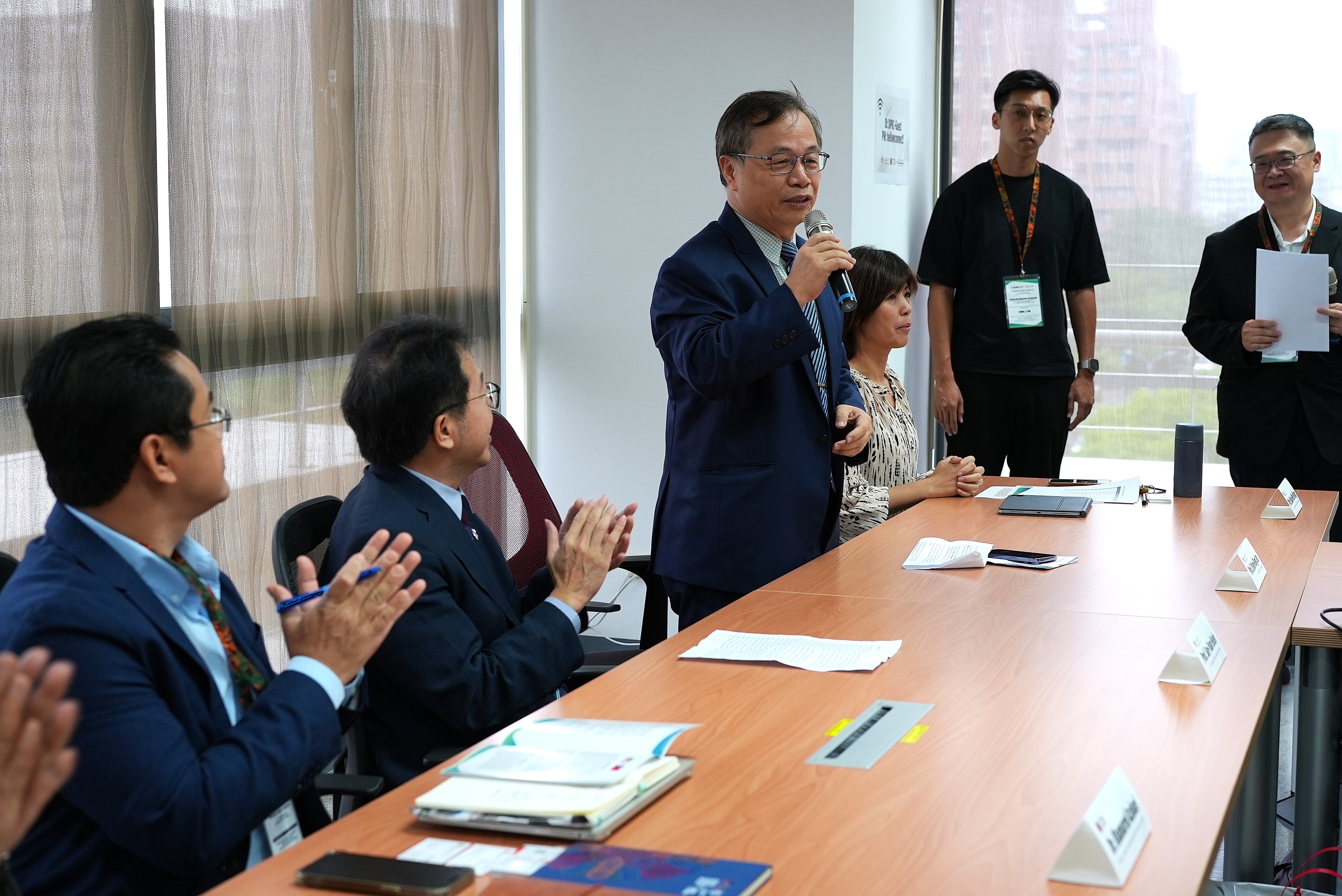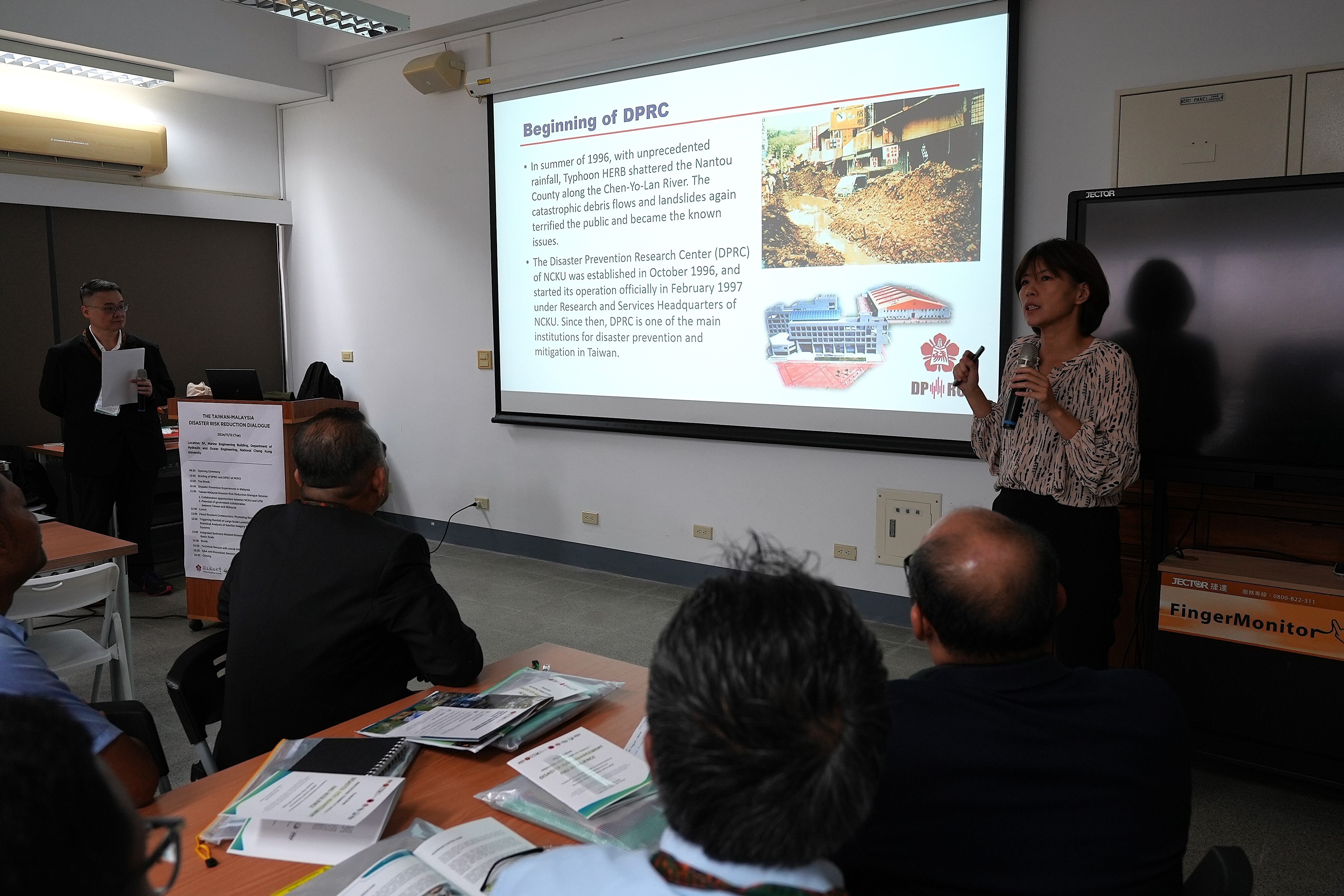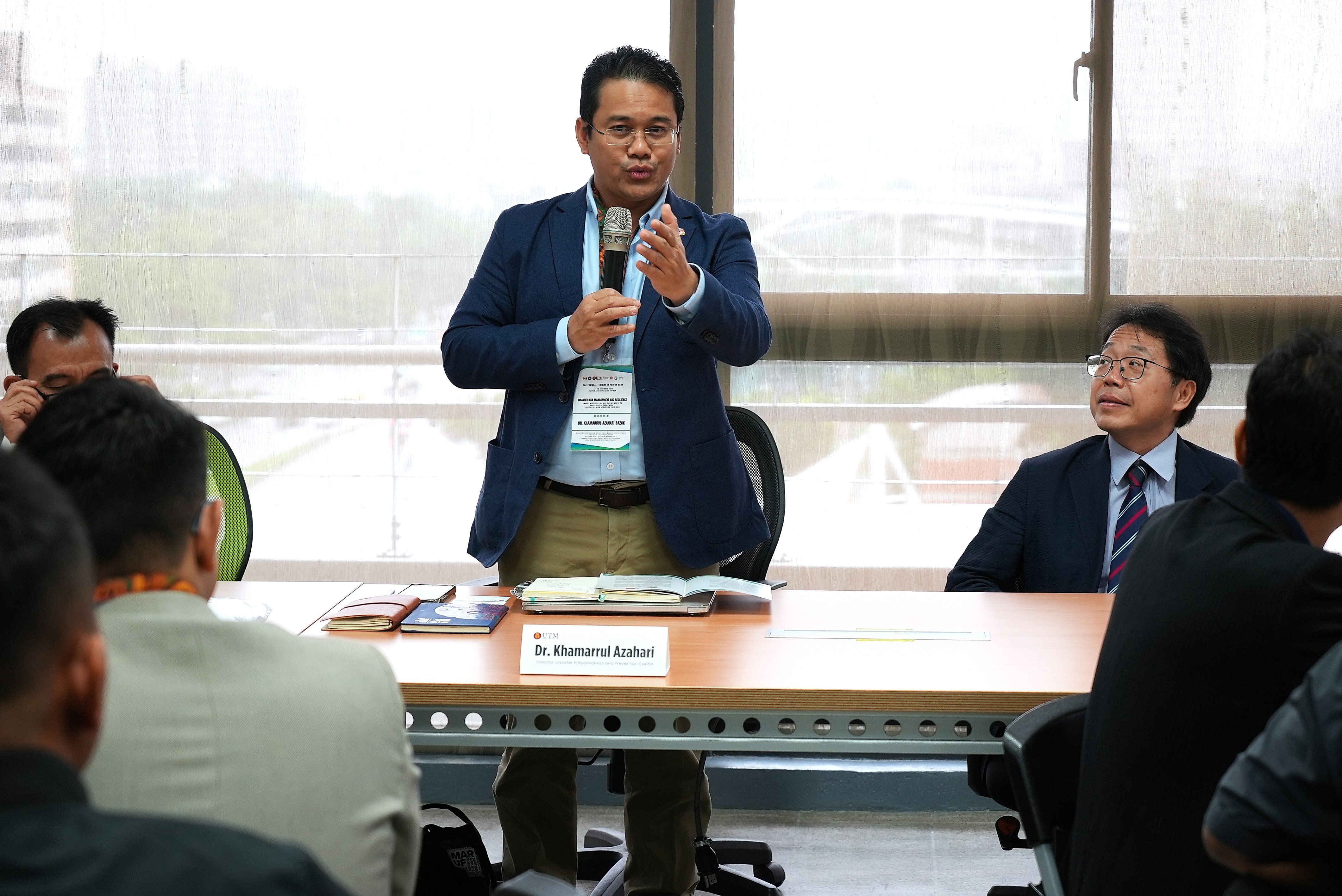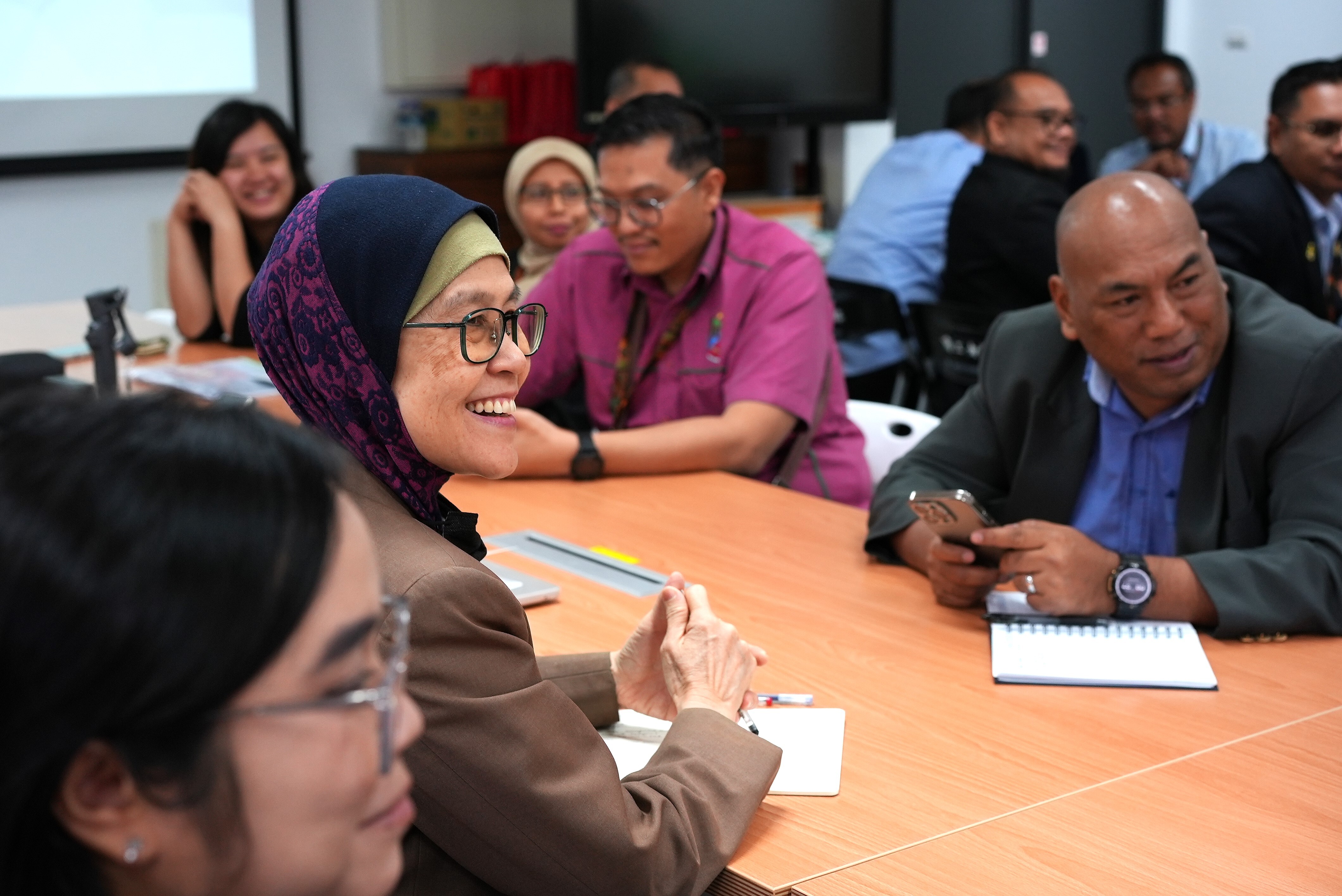NCKU Hosts International Disaster Risk Management Course, Strengthening Taiwan-Malaysia Cooperation
Written by NCKU DPEC. Image credit to NCKU News Center.

National Cheng Kung University (NCKU) has partnered with the Disaster Prevention and Management Center (DPPC) at Universiti Teknologi Malaysia (UTM) to organize an "International Disaster Risk Management Short Course" from November 12 to 16, 2024.
National Cheng Kung University (NCKU) has partnered with the Disaster Prevention and Management Center (DPPC) at Universiti Teknologi Malaysia (UTM) to organize an "International Disaster Risk Management Short Course" from November 12 to 16, 2024. The course attracted 30 participants from Malaysia, including government officials, young scholars, and researchers. It aims to showcase Taiwan’s advanced disaster prevention technologies and foster deeper cooperation between Taiwan and Malaysia in disaster risk management.

Prof. Chyan-Deng Jan, Dean of the College of Engineering at NCKU, noted Taiwan’s extensive experience in disaster risk management, which he believes can offer fresh perspectives and solutions for Malaysia.
At the opening ceremony, Prof. Sun-Yuan Hsieh, Vice President, office of International Affairs at NCKU, emphasized the significance of this event: "This course serves as a crucial platform for deepening collaboration between Taiwan and Malaysia in disaster prevention. We hope that this exchange of expertise and knowledge will pave the way for further cooperation." He highlighted that the program is not only an academic exchange but also a valuable opportunity for practical experience sharing.
Prof. Chyan-Deng Jan, Dean of the College of Engineering at NCKU, noted Taiwan’s extensive experience in disaster risk management, which he believes can offer fresh perspectives and solutions for Malaysia. "We hope the participants will absorb the insights shared in this course and apply them effectively in their disaster management practices," he said.

Prof. Hsiao-Wen Wang, Head of NCKU’s Disaster Prevention Education Center, which has been actively promoting international cooperation in disaster education, remarked on the importance of global collaboration in addressing disaster risks intensified by climate change.
Prof. Hsiao-Wen Wang, Head of NCKU’s Disaster Prevention Education Center, which has been actively promoting international cooperation in disaster education, remarked on the importance of global collaboration in addressing disaster risks intensified by climate change. "Since its establishment in 2017, our center has conducted numerous international training programs, hosting participants from countries like Malaysia, Indonesia, and Nepal. This course is expected to serve as a platform for continuous knowledge exchange and long-term cooperation," she explained. Wang stressed that this initiative aims to bridge the gap between policy implementation and community engagement, enhancing overall disaster management effectiveness.

Dr. Khamarrul Azahari Razak from the DPPC highlighted the potential impact of the course, stating.
Dr. Khamarrul Azahari Razak from the DPPC highlighted the potential impact of the course, stating, "While Malaysia’s land area is ten times larger than Taiwan's, Taiwan’s disaster management capabilities far exceed ours. We are eager to learn from Taiwan’s advanced techniques and experiences to strengthen our own disaster response strategies." He expressed optimism about the deeper, more comprehensive exchanges between the two nations through this course, aimed at elevating disaster risk management standards.
Dr. Norhafifi Bin Haji Ismail, a veteran in disaster management with over 35 years of experience and former Deputy Chief Commissioner of Operations at the Malaysian Civil Defence Force, also addressed the participants. "Taiwan's deep knowledge and practical expertise in disaster risk management are invaluable. Through this course, we look forward to sharing expertise and learning from Taiwan’s best practices, which will significantly enhance Malaysia’s disaster response capabilities," he stated.

The course attracted 30 participants from Malaysia, including government officials, young scholars, and researchers.
The course curriculum covers a range of crucial topics, including soil and water conservation, community-based disaster prevention, watershed sediment management, flood risk management, as well as disaster response and recovery strategies. Participants will gain in-depth understanding of the four key stages of disaster risk management: mitigation, preparedness, response, and recovery, through specialized lectures, site visits, and interactions with experts across various fields.
During the program, participants will visit key disaster prevention sites, such as the Huashan Outdoor Disaster Prevention Classroom, the National Science and Technology Center for Disaster Reduction, and the Sustainable Green Engineering Education Zone. These visits aim to provide firsthand insights into Taiwan's best practices in disaster management.
As global demand for disaster risk management solutions continues to grow, the organization of this course comes at a critical time. NCKU aims to extend its disaster prevention expertise across Southeast Asia, promoting talent exchange and resource sharing to collectively address future disaster challenges.
This international training program highlights NCKU’s commitment to building resilient communities and fostering regional cooperation in the face of increasing disaster risks.
Provider:
NCKU News Center
Date:
2024-11-12